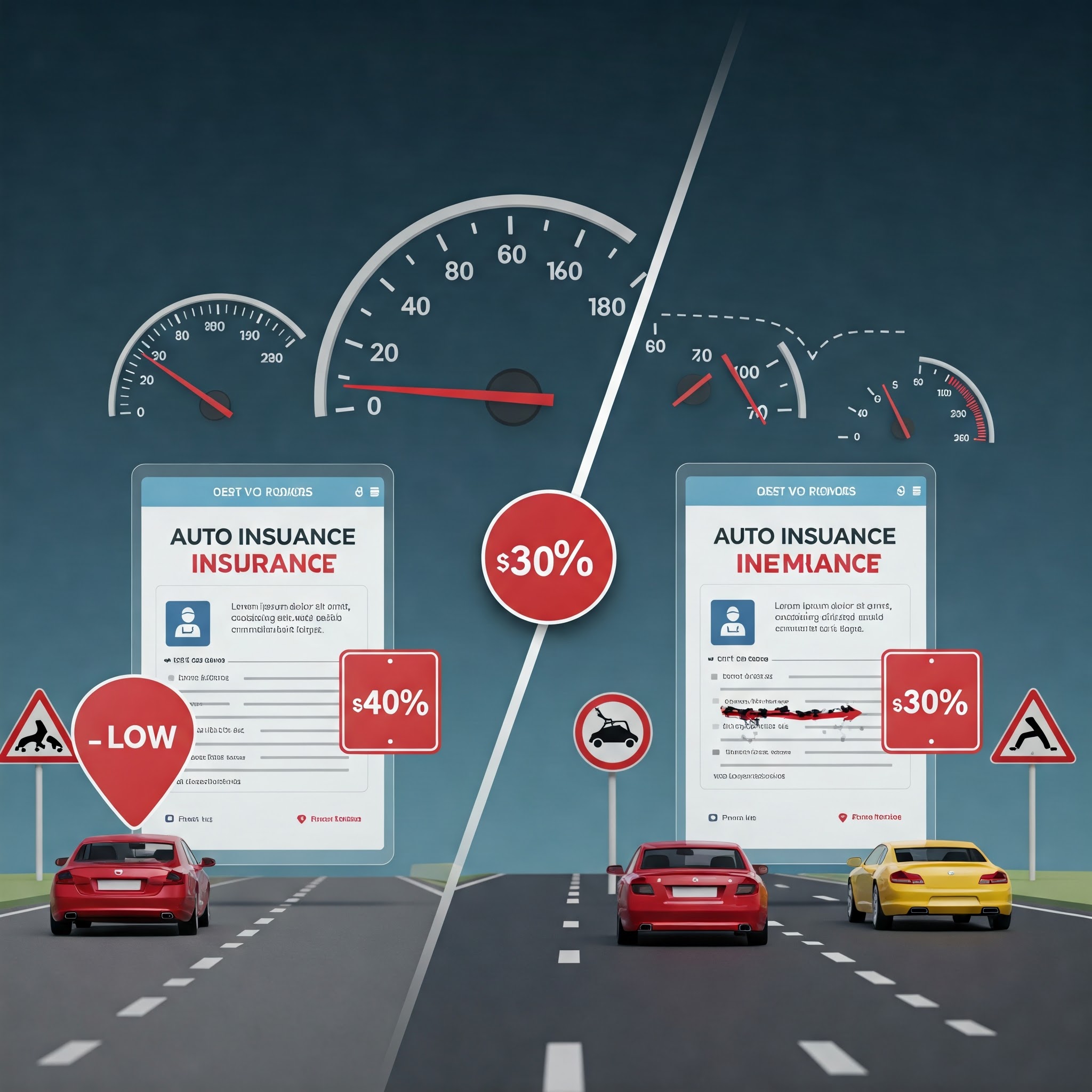Introduction
Did you know that your driving history can significantly affect how much you pay for auto insurance? Insurance companies consider your past driving behavior when determining your premiums. A clean record can mean lower costs, while a history of accidents or traffic violations can lead to higher rates.
In this article, we’ll explore how driving history influences auto insurance premiums. We’ll also discuss ways to improve your record and reduce your insurance costs over time.
Understanding the Topic
What is Driving History?
Your driving history is a record of your behavior on the road. It includes details like traffic violations, accidents, DUIs, and the number of years you’ve been driving. Insurance companies use this information to assess your risk level as a driver.
Why Does It Matter for Auto Insurance?
Insurance companies aim to minimize risk. If you have a clean driving record, you’re seen as a lower risk, and you’ll likely pay less for coverage. On the other hand, if you have a history of reckless driving, insurers may charge you more to offset the risk.
Real-World Examples
- A driver with no accidents or tickets in the past five years may qualify for a safe driver discount.
- Someone with multiple speeding tickets could see a 20-30% increase in their insurance premium.
- A driver with a DUI may be classified as high-risk and may even need special insurance coverage.
Key Benefits of a Clean Driving Record
1. Lower Insurance Premiums
The biggest advantage of a clean record is lower insurance costs. Many insurers offer discounts to drivers with a history of safe driving.
2. Better Coverage Options
Drivers with a poor history may have limited choices when it comes to coverage. A clean record allows you to choose from a wide range of policies at competitive rates.
3. No Risk of Policy Cancellation
Frequent violations or accidents can lead to policy cancellation or non-renewal by your insurer. A good driving record keeps your policy secure.
4. Eligibility for Safe Driver Discounts
Many insurance companies reward safe drivers with discounts, which can save you hundreds of dollars per year.
Step-by-Step Guide to Improving Your Driving Record
- Follow Traffic Laws – Always obey speed limits, signals, and road signs.
- Take Defensive Driving Courses – Many insurers offer discounts if you complete a defensive driving class.
- Avoid Distracted Driving – Stay focused on the road and avoid using your phone while driving.
- Drive a Safe Vehicle – Safer vehicles with advanced safety features may qualify for lower premiums.
- Review Your Driving Record – Check for errors and dispute any incorrect information.
- Practice Safe Driving Habits – Avoid aggressive driving and risky maneuvers.
- Limit Unnecessary Driving – Fewer miles on the road reduce the chances of accidents.
Common Problems & Solutions
Problem 1: High Insurance Rates Due to Past Violations
Solution: Consider switching to an insurer that specializes in high-risk drivers, or take a defensive driving course to lower your premium.
Problem 2: Errors in Driving Record
Solution: Request a copy of your driving record and dispute any incorrect violations with the DMV.
Problem 3: DUI Conviction Raising Rates
Solution: Shop around for an insurer that offers competitive rates for drivers with a DUI, and work on improving your record over time.
Problem 4: Lack of Discounts
Solution: Ask your insurer about all available discounts, including bundling policies, installing safety features, or using telematics tracking.
Future Trends & What’s Next?
1. Usage-Based Insurance (UBI)
Many insurance companies now offer policies that track driving behavior in real time. Safe driving habits can lead to lower premiums.
2. AI-Powered Risk Assessment
Insurers are using artificial intelligence to assess risk more accurately. This could lead to more personalized pricing.
3. Stricter Laws on Distracted Driving
With increasing regulations on phone usage while driving, violations for distracted driving may have a bigger impact on premiums in the future.
4. More Incentives for Safe Drivers
Some insurers are offering rewards, such as cashback or additional discounts, for maintaining a clean driving record over time.
Conclusion & Final Thoughts
Your driving history plays a major role in determining your auto insurance premiums. Safe driving can lead to lower costs, better coverage, and fewer policy restrictions.
If your driving history isn’t perfect, don’t worry—there are steps you can take to improve it. By following traffic laws, taking defensive driving courses, and practicing good habits on the road, you can lower your premiums and enjoy better insurance options.
Start taking action today and see the benefits of a clean driving record!
FAQs
1. What is a driving history report?
A driving history report includes details about your traffic violations, accidents, DUIs, and years of driving experience.
2. How far back do insurance companies look at driving history?
Most insurers check the past 3-5 years, but serious violations like DUIs may stay on record for longer.
3. Can I lower my insurance rates if I have a bad driving record?
Yes, you can take defensive driving courses, shop for better rates, and practice safe driving to improve your record over time.
4. Will a single speeding ticket affect my premium?
It depends on the insurer, but a minor speeding ticket may cause a small increase. Multiple violations can have a bigger impact.
5. How do I check my driving record?
You can request a copy of your driving record from your state’s DMV or online through official government websites.
